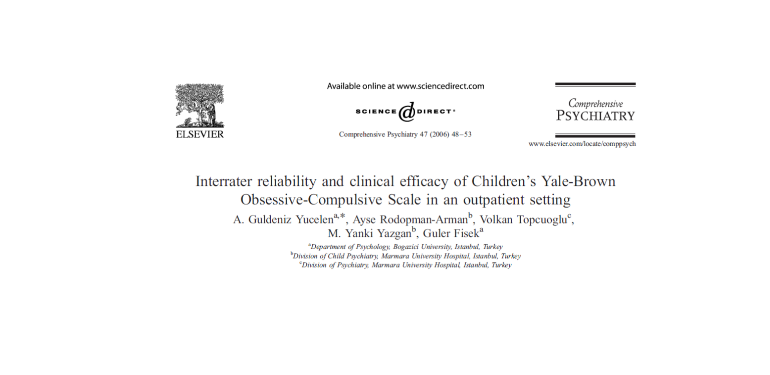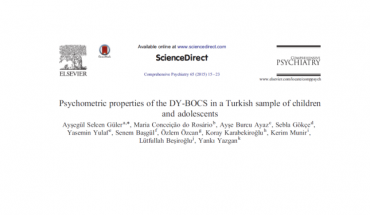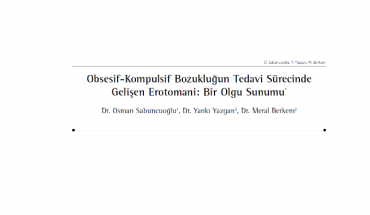Abstract
Objective: To evaluate the interrater reliability of the Turkish version of the Children’s Yale-Brown Obsessive-Compulsive Scale (CY-BOCS) and to measure the clinical efficacy using a linician-rated impression scale in a clinical outpatient setting.
Method: Data were collected from 19 nonmedicated children and adolescents (6 girls, 13 boys, mean age 14 ± 2.25 years) with obsessive compulsive disorder (OCD). Interrater reliability was assessed by 3 raters through videotape recordings of evaluation. Correlational analyses were maintained by comparing CY-BOCS scores to self-ratings of Children’s Depression Inventory (depression), 20-item Leyton Obsessional Inventory–Child Version (obsessive-compulsive symptoms), and Child Behavior Checklist (parent ratings of behavioral problems). The Clinical Global Impression for OCD was administered to measure the clinical efficacy of CY-BOCS.
Results: Internal consistency was .77 for the total 10 items. The interrater reliabilities, defined as the intraclass correlation for the compulsion subscale, the obsession subscale, and the CY-BOCS total scores were .85, .94, and .89, respectively. Although the sample size was small, CY-BOCS total score was correlated with the Clinical Global Impression score ( P ˂ .01) and showed a significantly higher correlation with Leyton Obsessional Inventory–Child Version scores when compared with Children’s Depression Inventory and Child Behavior Checklist scores.
Conclusion: Our results indicate that the Turkish version of CY-BOCS yielded good interrater reliability and was significantly correlated with a clinician-rated global impression scale. Although the small sample size hinders a conclusion, CY-BOCS showed significant results regarding validity measures. Therefore, our results support that CY-BOCS has the potential to fulfill the need in clinical research settings.



